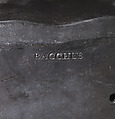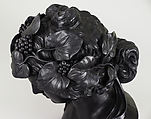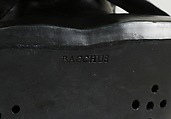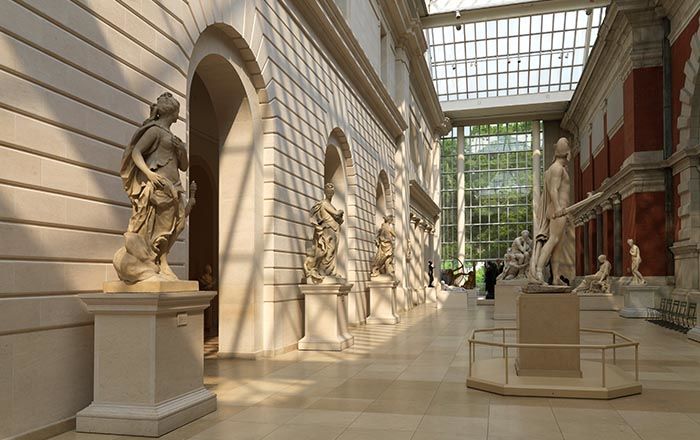Bust of Bacchus
Josiah Wedgwood and Sons British
This monumental bust of Bacchus demonstrates Wedgwood’s exceptional skills in copying antique forms and modernizing them by using novel ceramic bodies such as black basalt. Probably intended to decorate a library, the bust is a copy of an ancient marble sculpture purchased by the earl of Shelburne in 1772. Once considered Emperor Hadrian’s lover Antinous, the bust is now thought to represent the ancient Roman god of wine and intoxication.
Due to rights restrictions, this image cannot be enlarged, viewed at full screen, or downloaded.
This artwork is meant to be viewed from right to left. Scroll left to view more.









